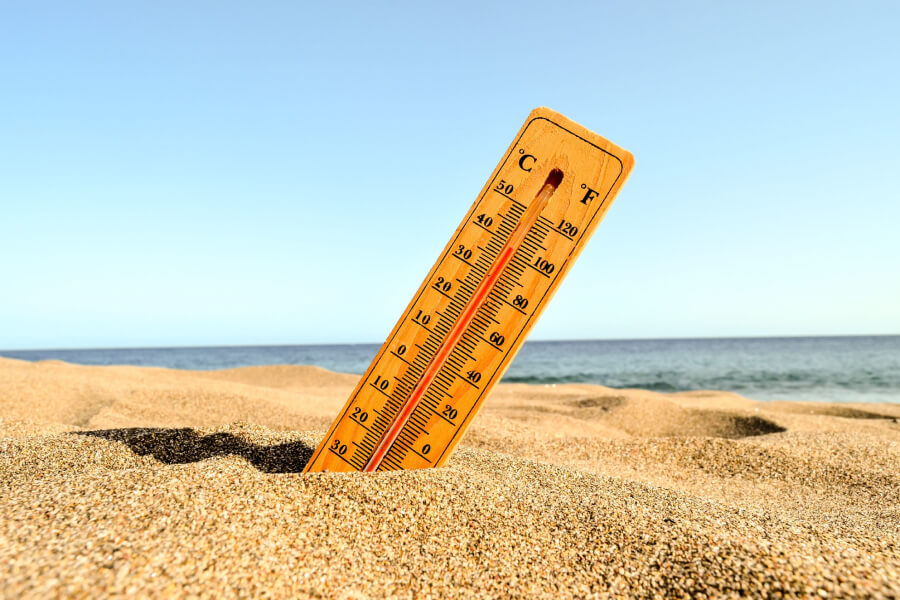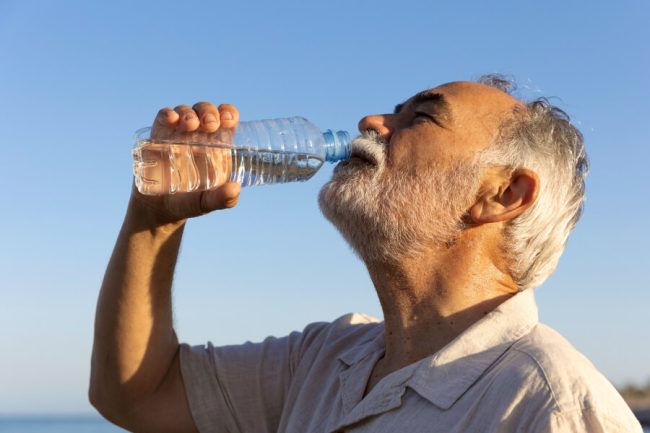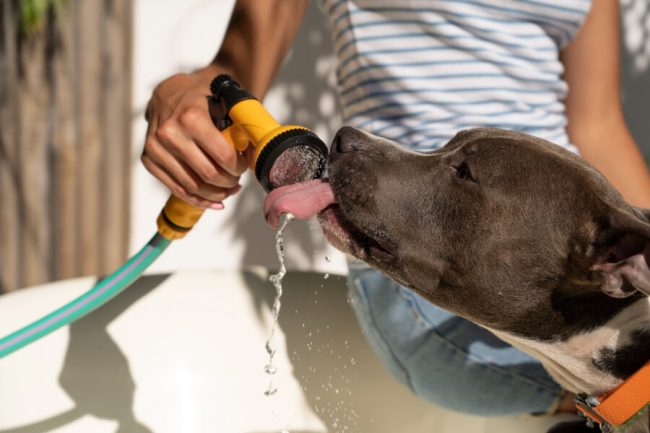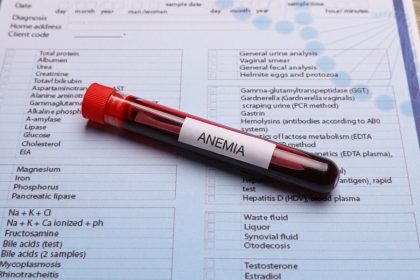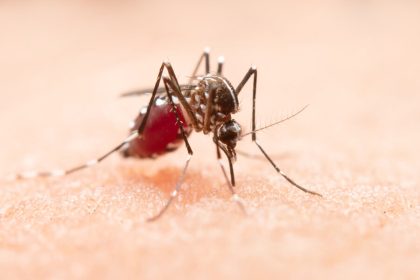As temperatures rise, it’s crucial to stay informed and take proactive measures to avoid excessive heat warning alerts.
Whether you’re at home, work, or enjoying the outdoors, these tips will help you stay safe and cool during extreme heat conditions.
1. Stay Hydrated
One of the simplest yet most effective ways to prevent heat-related illnesses is to stay hydrated. Drink plenty of water throughout the day, even if you don’t feel thirsty.
Avoid beverages with caffeine, alcohol, or high sugar content as they can dehydrate you.
Carry a water bottle with you and make it a habit to take frequent sips. Avoid sugary, caffeinated, and alcoholic drinks as they can dehydrate you.
2. Avoid Direct Sun Exposure
Whenever possible, stay out of direct sunlight, especially during the peak heat hours of 10 a.m. to 4 p.m.
If you need to be outside, seek shade or create your own with umbrellas or wide-brimmed hats.
Direct sun exposure can quickly raise your body temperature, leading to heat exhaustion or heat stroke.
3. Wear Lightweight and Light-Colored Clothing
Dressing appropriately for hot weather is key to staying cool. Opt for lightweight, loose-fitting, and light-colored clothing.
Light colors reflect the sun’s rays rather than absorbing them, helping to keep your body temperature down.
Natural fabrics like cotton and linen are breathable and ideal for hot weather.
4. Stay in Cool or Air-Conditioned Places
During extreme heat, it’s important to stay as long as possible in cool, shaded, or air-conditioned places.
If you don’t have air conditioning at home, spend time in public places like libraries, shopping malls, or community centers.
Even a few hours in air conditioning can help your body stay cooler when you return to the heat.
5. Use Sun Protection
Protecting your skin from the sun’s harmful rays is crucial.
Use a broad-spectrum sunscreen with at least SPF 30, and reapply it every two hours or after swimming or sweating.
Wearing sunglasses and a wide-brimmed hat can also protect your face and eyes from excessive heat and sun damage.
6. Avoid Strenuous Activities During Peak Heat Hours
Physical activities can significantly increase your body temperature.
Schedule outdoor activities, exercise, or sports for early morning or late evening when temperatures are cooler.
If you must be active during peak heat hours, take frequent breaks in the shade and drink plenty of water.
7. Pay Special Attention to Vulnerable Populations
Infants, young children, the elderly, and people with certain health conditions are more susceptible to heat-related illnesses.
Ensure they stay cool, hydrated, and out of direct sunlight. Never leave children or pets in a parked car, even for a short time, as temperatures can rise to dangerous levels very quickly.
8. Create a Cool Environment at Home
Keep your living space cool by closing blinds or curtains during the hottest parts of the day.
Use fans to circulate air and, if possible, use an air conditioner or dehumidifier. Taking cool showers or baths can also help lower your body temperature.
9. Reduce Outgoing Activities
Limit your outings and errands during extreme heat. Plan your day to avoid being outdoors during peak temperatures.
When you do go out, dress appropriately, bring water, and seek shaded areas whenever possible.
10. Stay Informed About Heat Warnings
Monitor weather forecasts and stay informed about excessive heat warnings in your area.
Many regions offer heat alert systems via text, email, or apps. Knowing when to expect extreme heat can help you plan and take necessary precautions.
Tips for Seniors
Seniors are particularly vulnerable to excessive heat. Here are some specific tips to help them stay safe:
- Check on Elderly Loved Ones: Regularly check on seniors to ensure they are staying cool and hydrated.
- Medication Awareness: Some medications can increase sensitivity to heat. Seniors should consult their doctors about their medications.
- Cool Environment: Make sure their living spaces are adequately cooled, whether by fans, air conditioning, or visiting cooler locations.
- Hydration Reminders: Encourage seniors to drink water regularly, even if they don’t feel thirsty.
Advice for Children
Children can quickly become overheated, so it’s essential to take extra precautions:
- Keep Them Hydrated: Ensure children drink plenty of fluids, especially water.
- Limit Outdoor Play: Schedule outdoor activities for early morning or late evening when it’s cooler.
- Dress Appropriately: Dress children in lightweight, light-colored clothing.
- Never Leave in Cars: Never leave children unattended in vehicles, even for a short time.
Ensuring Safety for Pets
Pets also need special care during excessive heat:
- Provide Plenty of Water: Ensure pets have access to fresh, cool water at all times.
- Avoid Hot Surfaces: Walk pets on grass rather than hot pavement to prevent burns on their paws.
- Cool Resting Areas: Provide a cool, shaded area for pets to rest.
- Never Leave in Cars: Never leave pets in a parked car, even with windows cracked.
Emergency Preparedness for Extreme Heat
Being prepared for extreme heat emergencies can save lives:
- Create an Emergency Kit: Include water, non-perishable food, medications, and cooling supplies like fans or cooling towels.
- Know Cooling Centers: Identify local cooling centers where you can go if you lose air conditioning.
- Have a Plan: Develop a family emergency plan that includes how to stay cool and where to go if heat becomes unbearable.
How to Stay Informed About Heat Warnings
Staying informed about heat warnings is crucial:
- Monitor Local News: Regularly check local news and weather forecasts.
- Sign Up for Alerts: Register for local weather alerts via text or email.
- Use Weather Apps: Download weather apps that provide real-time heat warnings.
Creating a Heat Emergency Plan
A heat emergency plan ensures you’re prepared for extreme temperatures:
- Identify Cool Places: Know where you can go to stay cool, such as friends’ houses or public places.
- Stock Up: Keep an adequate supply of water, food, and cooling items at home.
- Check on Neighbors: Look out for vulnerable neighbors, especially the elderly or those with health issues.
Knowing How to Respond to Heat-Related Emergencies
Recognizing and responding to heat-related emergencies can be life-saving:
- Know the Signs: Learn the symptoms of heat exhaustion and heat stroke, such as dizziness, nausea, and confusion.
- Act Quickly: If someone shows signs of heat-related illness, move them to a cool place, apply cool compresses, and seek medical attention immediately.
- Stay Calm: Keep a clear head and act swiftly to provide assistance.
Conclusion
Excessive heat warning alerts are serious and require prompt attention.
By following these ten tips, you can stay cool, hydrated, and safe during extreme heat conditions.
Always be prepared and prioritize your health and the well-being of those around you.
FAQs
What are 10 actions you can take to prevent heat-related injury?
Drink plenty of water. Avoid direct sunlight. Wear light-colored, loose-fitting clothing. Stay in air-conditioned places. Use sunscreen and wear hats. Avoid strenuous activities during peak heat hours. Monitor vulnerable populations. Keep your home cool. Limit outdoor activities. Stay informed about heat warnings.
How can you prevent excessive heat?
To prevent excessive heat effects, stay hydrated, avoid direct sun exposure, wear appropriate clothing, use sun protection, limit physical activities, and stay informed about weather alerts.
What precautions should be taken during excessive heat warning?
During an excessive heat warning, drink plenty of water, stay indoors or in shaded areas, wear light clothing, use sunscreen, avoid strenuous activities, and monitor vulnerable individuals.
What are 3 guidelines for preventing heat-related conditions?
Stay hydrated. Avoid direct sun exposure. Use air conditioning or seek cool environments.

